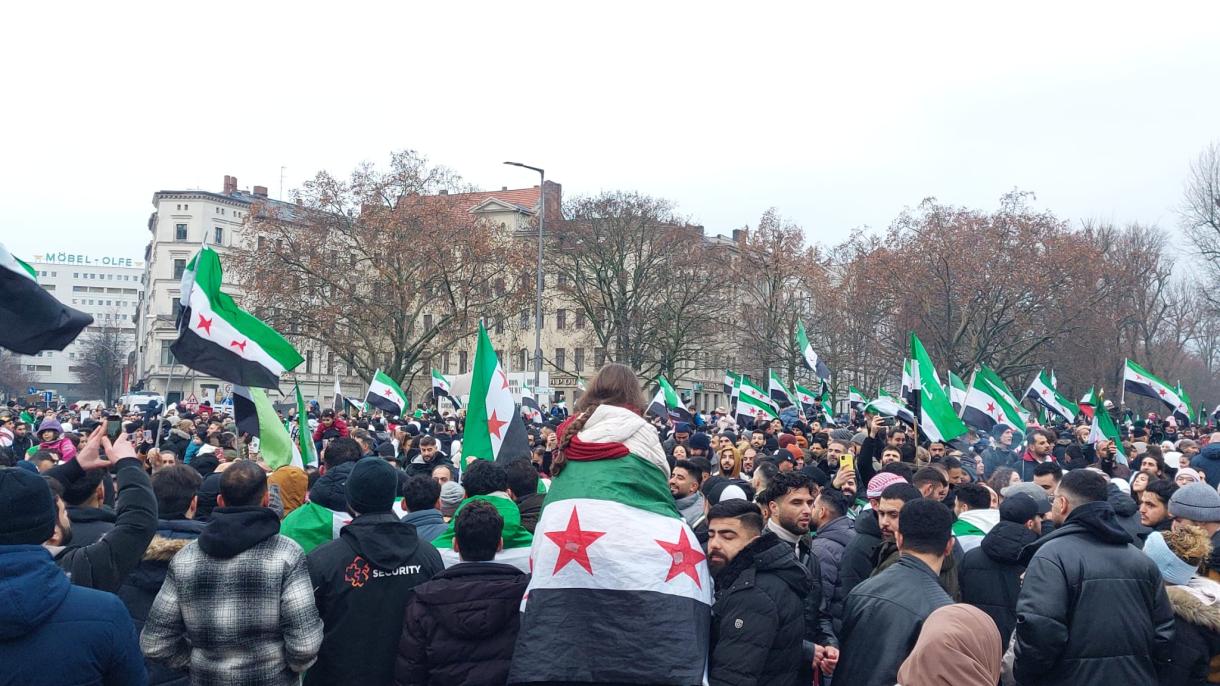
Online discussion series
- Thursday, 19. December 2024 2:00 pm – 3:30 pm Save in my calendar
Böll.Global | A new beginning for Syria: How can it succeed?
For more than half a century, the Assad family regime ruled Syria with extreme brutality. On December 8, after an offensive lasting just under a week and a half, it was finally overthrown by militias led by Islamist rebels together with Kurdish and Druze forces. For Syrians, this was a historic and highly emotional moment: people rejoiced not only in Syria, but also on German streets and elsewhere, where 12 million Syrians had sought refuge since the brutal suppression of the Damascus Spring and the ensuing war. Videos of statues of the dictator being knocked over and prisoners being freed from their cells with crowbars went around the world. Numerous families that had been torn apart for many years celebrated their reunion. However, tens of thousands of others continue to fear for the fate of their missing family members.
Hopes for a free, democratic future are high. However, in view of the large number of internal and external actors with different interests, a stable future that is inclusive of the many Syrian minorities seems uncertain.
The international community is sceptical of the HTS (Hayat Tahrir al-Sham - Organization for the Liberation of Syria), which is listed as a terrorist organization by the United Nations Security Council and led the offensive against the regime from Idlib. The SNA (Syrian National Army), controlled from Ankara, is attacking the areas governed by Kurdish troops in the northwest. Israel is bombing military targets in Syria and has advanced from the part of the Golan Heights that it has occupied in violation of international law since 1967 into the “buffer zone” under UN control.
Much will now depend on how the various actors behave and whether the international community will play a constructive role. Important elements of this enormous task include the reconstruction coupled with an inclusive political transition, the prosecution of human rights violations, the establishment of democratic institutions, the protection of minorities and guarantees for human rights and personal freedoms. Syrian civil society, victims' associations, lawyers, journalists and cultural workers in and outside Syria have already done considerable groundwork in all these areas.
Instead of waiting until the situation in Syria becomes clearer and the European contribution to stabilizing the country is discussed, some European countries are already beginning to concretize repatriation plans for refugees from Syria. This issue will also play a role in the German election campaign. The Federal Office for Migration and Refugees (BAMF) has temporarily suspended the processing of over 45,000 asylum applications from Syrians.
We want to discuss the following questions with our panelists:
- What has changed with the fall of Assad, and what future scenarios and risks are likely?
- What interests do the various Syrian, regional and international actors have?
- What will Syrian civil society have to achieve in the future?
- How can Germany and the EU support Syrian civil society and an inclusive political transition?
- How should Germany deal with Syrian refugees?
With:
- Dr. Bente Scheller, Head of Middle East and North Africa Division, Heinrich Böll Foundation
- Razan Rashidi, Executive Director, The Syria Campaign
- Mohammad Al Attar, Syrian playwright and dramaturge
Moderation: Layla Al-Zubaidi, Deputy Director of International Department, Heinrich Böll Foundation
Contact:
Louisa Reeh
Heinrich Böll Foundation
E reeh@boell.de
» Online participation in ZOOM
The access information will be sent to you by email 24 hours and then 2 hours prior to the event.
You can use either the Zoom Client software or the app. If you are using either the Chrome or Edge browsers you will be able to participate directly via the access link. For more information on how to use Zoom, click here.
Please make sure that you are using the latest version of Zoom so that you have the necessary settings. You will need a microphone and possibly a camera for events with audience participation.
The Heinrich Böll Foundation is not liable for issues arising from the use of Zoom software. Zoom's current privacy policy can be found here.
» Livestream
Alternatively, you can follow the event via the livestream without registering.
Livestream in English
Livestream in German
- Part of the series
- Böll.Global
- Address
-
➽ Online Event
- Language
- German
- English
- Simultaneous translation
- Livestream
- Watch livestream
